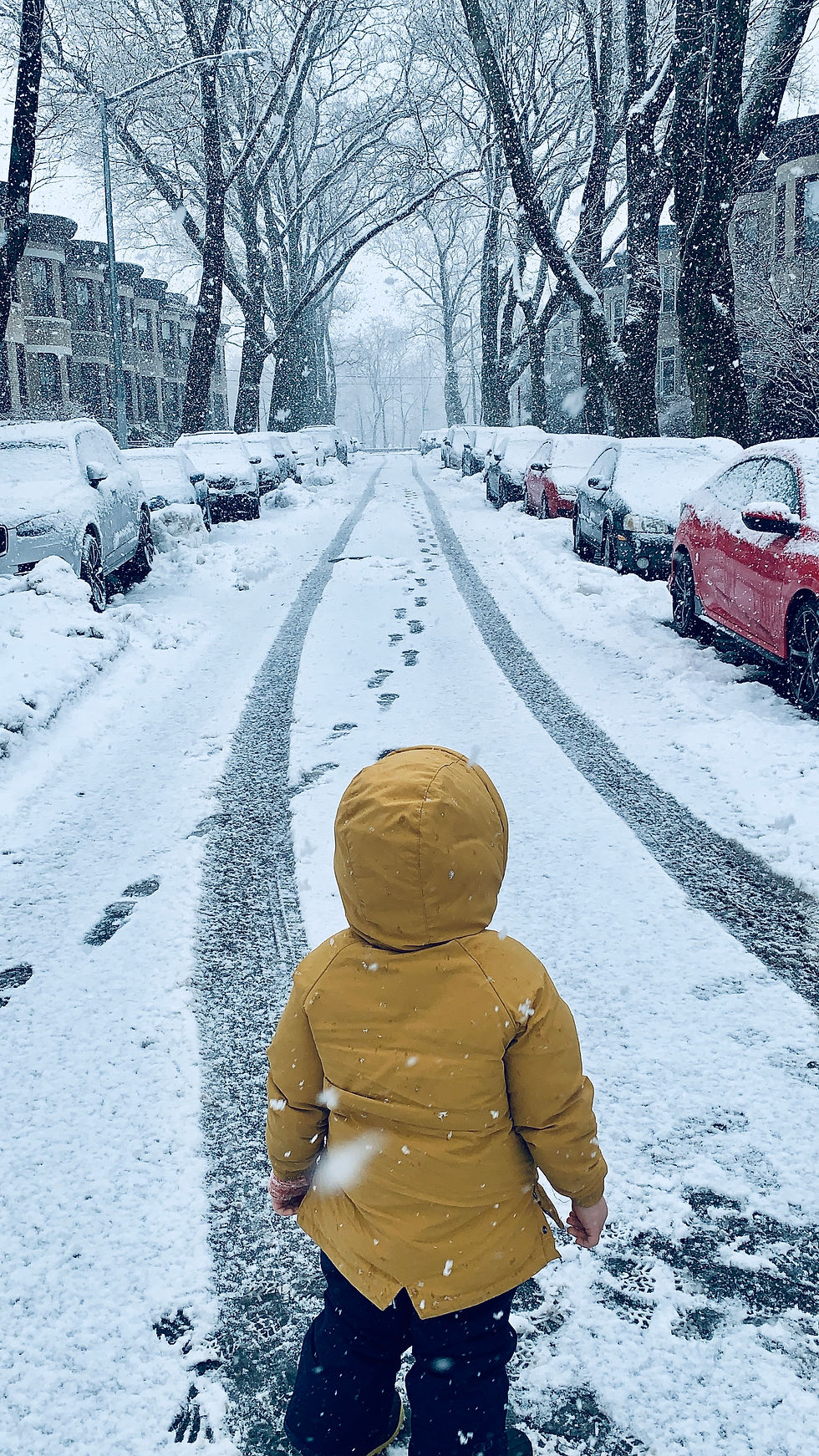Emotional Sensitivity
- Stephanie D.
- Feb 22, 2021
- 3 min read
Updated: Apr 16, 2021

We got a decent amount of snow in Brooklyn last week. My spouse, son, and I decided to walk to the store to enjoy the crisp cold evening maybe even let our boy climb a snow hill or two.
On our way back home, I followed my spouse as he carried our son on his shoulders. We crossed the street and made our way to the sidewalk where we came upon a large deep pool of slush. He, confident in his water proof insulated almost knee-high boots, stomped right through the icy mixture like it was nothing. I, on the other hand, attempted to take a step, hesitated, and paused eyes darting left and right for another way around. I took a detour into a clearish path and caught up to them while mumbling "well, we are not all equipped with weather proof boots are we?!" You see I wasn't wearing snow boots. Now If you've never experienced the body-freeze that comes with stepping into a deep pool of frozen muddy slush without snow boots, and the misfortune of having to go about the rest of your day with soaking wet shoes, socks, and pants, let me tell you: it is NOT pleasant.
I can't help but think of this incident as a metaphor to better understand emotions.
We are not all equipped with the same emotional tools. Therefore, when life presents us with a pool of frigid slush, the path that we take will inevitably look different than someone else's.
"Emotional sensitivity [...] exists on a spectrum. Some of us feel a little and some of us feel a lot." That is a fact. There is no right or wrong amount and way of feeling, and "when we judge others for what and how much they feel, it says more about our ability to handle the emotions of others" (Hilary Jacobs-Hendel).
Personal history is also an unique experience. Some of us learned healthy coping and processing skills early on, and some of us adopted less than healthy mechanisms that are no longer serving us.
When we get to a frozen puddle in our relationships, school, work, or even grocery shopping, those of us who feel more intensely and/or those of us who aren't equipped with the necessary tools may get overwhelmed and stuck sometimes.
If that's you, here are some helpful things to remember.
"Emotional sensitivity [...] exists on a spectrum. Some of us feel a little and some of us feel a lot." Hilary Jacobs-Hendel
1- There is nothing wrong with you.
You simply don't have snow boots on and are therefore hypersensitive to the environment/climate. What seems like a trivial situation to a friend may evoke a host of emotions in you, which can feel confusing, isolating, and overpowering.
2- There is more than one way to your destination. Better yet, "it is the path off the path" that leads you to where you need to be (Mark Nepo). It's about the journey just as much as it is about the destination.
3- It's not always what it seems.
Sometimes, taking a detour may look like laziness or even running away, but it is rather an act of wisdom that requires listening to and extending compassion to yourself.
4- It is not a race.
The truth is some paths we take may be longer and more arduous than others, but that doesn't mean we are falling behind. To hell with FOMO. Life offers us exactly what we need to grow and evolve.
5- You can always get some snow boots.
Experiencing emotions in a certain way and intensity doesn't mean we are bound by them. As humans we get to evolve and grow our emotional skills toolkit as we see fit. We have the power to expand our awareness and identify what is contributing to our "stuckness" and to create more favorable pathways.
Feeling deeply is a gift
To the extent that we feel pain and grief, we also experience profound joy and love.
To the extent that we get overwhelmed by our environment, we also carry immense passion and wonder.
To the extent that we feel isolated by our experiences, we are also able to hold space for those who are hurting and marginalized.
The next time you are faced with an ice cold puddle of slush try to:
Pause,
Take a deep breath,
Observe and ground yourself,
Listen to your emotions,
Get curious about what they are communicating,
Choose what works best for you.


Comments